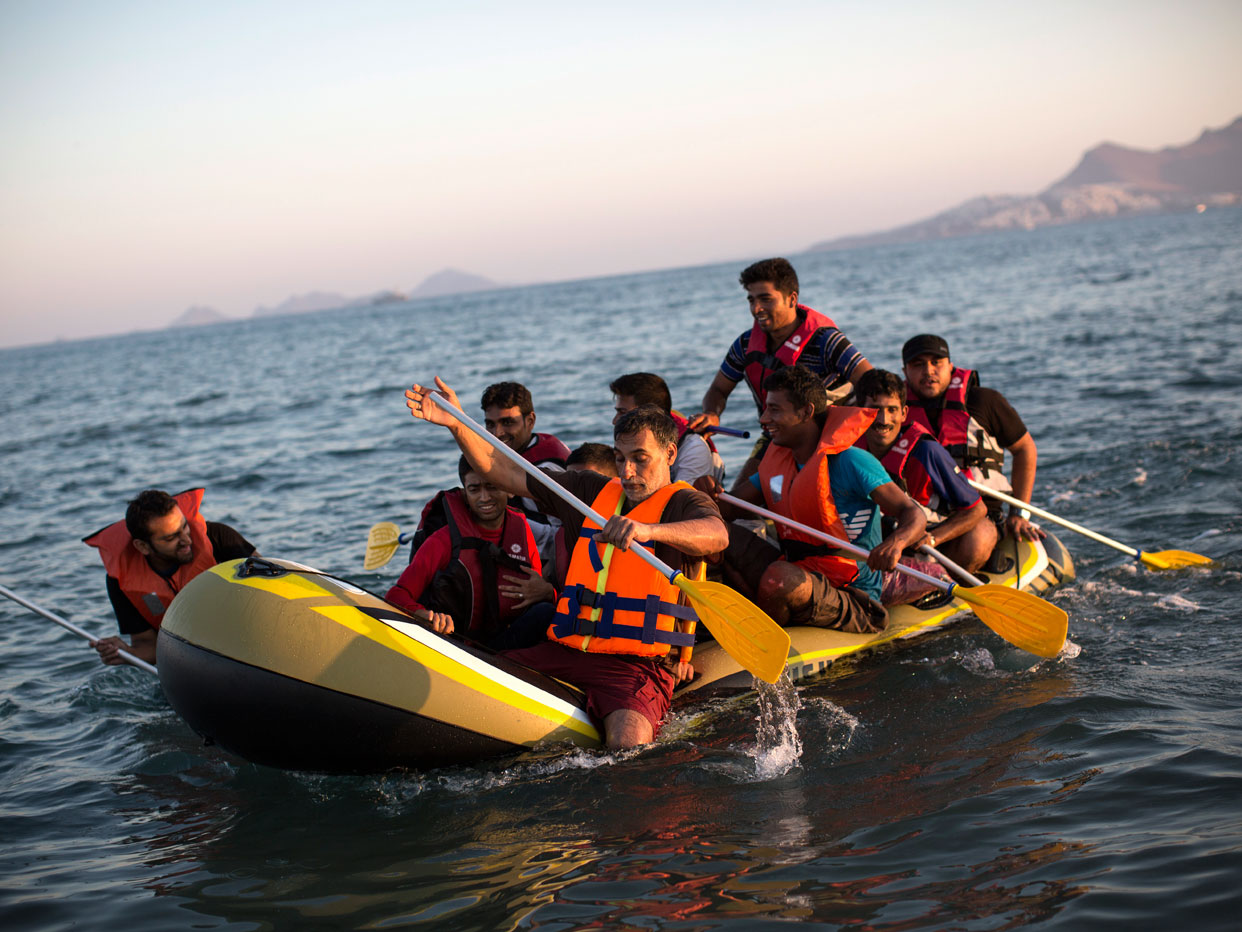Refugee crisis: why so many risk all to reach Europe
War in Syria and a failed state in Libya have led to the biggest displacement of people in a generation

A free daily email with the biggest news stories of the day – and the best features from TheWeek.com
You are now subscribed
Your newsletter sign-up was successful
Europe is facing the biggest forced migration of people since the end of the Second World War and is struggling to develop a coherent response to the growing humanitarian crisis.
Why are there so many refugees?
War, conflict and violence in the Middle East and North Africa has displaced millions of people in recent years and forced refugees to make the dangerous sea journey across the Mediterranean or travel by road, rail or foot through the Balkans. Thousands have died and the death toll continues to rise as desperate refugees search for a route to safety.
The Week
Escape your echo chamber. Get the facts behind the news, plus analysis from multiple perspectives.

Sign up for The Week's Free Newsletters
From our morning news briefing to a weekly Good News Newsletter, get the best of The Week delivered directly to your inbox.
From our morning news briefing to a weekly Good News Newsletter, get the best of The Week delivered directly to your inbox.
Where are they coming from?
The ongoing conflict in Syria lies at the heart of the crisis, with more than four million people having fled since the war began in 2011.The majority are living in refugee camps in neighbouring Turkey, Lebanon and Jordan, but hundreds of thousands have reached Europe. Meanwhile, the power vacuum in Libya has opened up a new gateway into the continent, one of which people-smugglers across North Africa have taken advantage. The rise of Islamic State in Syria and Iraq and religious, ethnic and separatist conflicts in Afghanistan, Yemen, south-east Turkey, Somalia, South Sudan, Eritrea and north-east Nigeria also continue to feed the crisis. Many of these conflicts show little sign of resolution – meaning more people will continue to flee in search of safety and few will feel safe enough to ever return home.
What can be done?
The vast scale of the crisis means a global strategy is needed. "No country can do it alone, and no country can refuse to do its part," says the United Nations Refugee Agency (UNHRC). It is calling on nations across Europe and the world to develop a common strategy based on responsibility, solidarity and trust. In the short term, governments in Europe are being urged to adhere to the EU's asylum policy and resettle as many refugees as possible to ease the burden on the countries inundated with the most people. In the long term; experts argue the huge flow of refugees will not stop until the root causes of the conflicts are addressed.
A free daily email with the biggest news stories of the day – and the best features from TheWeek.com
-
 How the FCC’s ‘equal time’ rule works
How the FCC’s ‘equal time’ rule worksIn the Spotlight The law is at the heart of the Colbert-CBS conflict
-
 What is the endgame in the DHS shutdown?
What is the endgame in the DHS shutdown?Today’s Big Question Democrats want to rein in ICE’s immigration crackdown
-
 ‘Poor time management isn’t just an inconvenience’
‘Poor time management isn’t just an inconvenience’Instant Opinion Opinion, comment and editorials of the day
-
 Epstein files topple law CEO, roil UK government
Epstein files topple law CEO, roil UK governmentSpeed Read Peter Mandelson, Britain’s former ambassador to the US, is caught up in the scandal
-
 Iran and US prepare to meet after skirmishes
Iran and US prepare to meet after skirmishesSpeed Read The incident comes amid heightened tensions in the Middle East
-
 Syria’s Kurds: abandoned by their US ally
Syria’s Kurds: abandoned by their US allyTalking Point Ahmed al-Sharaa’s lightning offensive against Syrian Kurdistan belies his promise to respect the country’s ethnic minorities
-
 Israel retrieves final hostage’s body from Gaza
Israel retrieves final hostage’s body from GazaSpeed Read The 24-year-old police officer was killed during the initial Hamas attack
-
 China’s Xi targets top general in growing purge
China’s Xi targets top general in growing purgeSpeed Read Zhang Youxia is being investigated over ‘grave violations’ of the law
-
 Syria’s Islamic State problem
Syria’s Islamic State problemIn The Spotlight Fragile security in prison camps leads to escape of IS fighters
-
 Panama and Canada are negotiating over a crucial copper mine
Panama and Canada are negotiating over a crucial copper mineIn the Spotlight Panama is set to make a final decision on the mine this summer
-
 Why Greenland’s natural resources are nearly impossible to mine
Why Greenland’s natural resources are nearly impossible to mineThe Explainer The country’s natural landscape makes the task extremely difficult